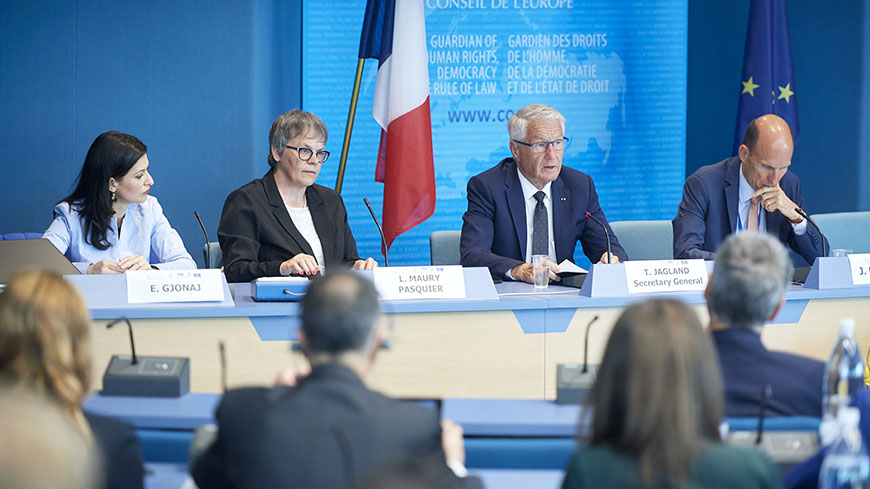The Group of States against Corruption (GRECO) is organising an international conference in Strasbourg on 17 June to mark its 20th anniversary.
Held under the auspices of the French Presidency of the Committee of Ministers, the event will discuss GRECO’s achievements in assisting states to improve their capacity to prevent and combat corruption, assess current challenges and anticipate emerging issues.
One of the sessions will address the challenges to prevent corruption and promote integrity of top executive functions in central governments, one of the issues GRECO is evaluating in its 5th evaluation round.
Secretary General Thorbjørn Jagland, French Justice Minister Nicole Belloubet and President of the Parliamentary Assembly Liliane Maury Pasquier will open the event together with Thea Tsulukiani, Minister of Justice of Georgia, Etilda Gjonaj, Minister of Justice of Albania, Laurent Anselmi, Minister of Justice of Monaco, and Marin Mrčela, President of GRECO. Frans Timmermans, Vice-President of the European Commission, will deliver a speech.
GRECO was created by a Resolution adopted in May 1999 by 17 Council of Europe member states to assist them in improving their capacity to fight corruption by monitoring compliance with anti-corruption standards. Since then, GRECO has helped its members to identify deficiencies in national anti-corruption policies, prompting the necessary legislative, institutional and practical reforms. GRECO currently comprises the 47 Council of Europe member states, Belarus and the United States of America.
Following the conference, from 17 June in the afternoon to 21 June, GRECO will hold a plenary meeting to discuss evaluation reports on the prevention of corruption in respect of central governments, including top executive functions, and law enforcement on Denmark, Spain and Slovakia.
On the agenda there are also compliance reports – concerning various evaluation rounds - on Switzerland, Denmark, Russia, Portugal, Belgium, Spain, Germany, Lithuania, Malta, Iceland and Romania (including the follow-up to Romania’s ad hoc evaluation). GRECO will also discuss a proposal to carry out an urgent ad hoc evaluation of Greece. Finally, GRECO will decide on a request by the European Union to have observer status.



